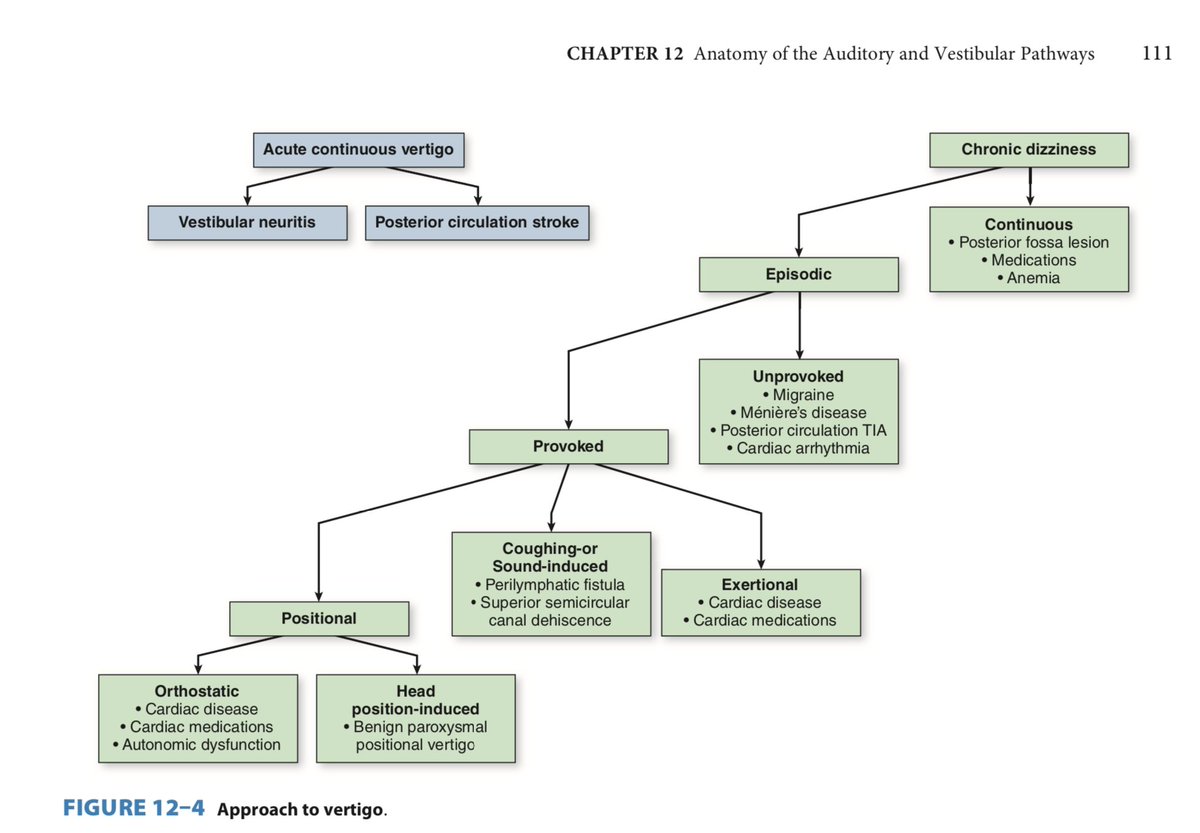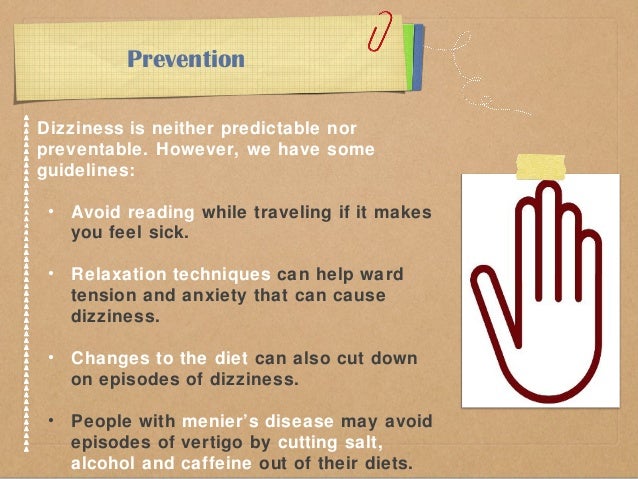Vertigo Facty
Vertigo. terence cawthorne. national center for biotechnology information, u. s. national library of medicine 8600 rockville pike, bethesda md, 20894 usa. Vertigo. terence cawthorne. national center for biotechnology information, u. s. national library of medicine 8600 rockville pike, bethesda md, 20894 usa. Vertigo is a sensation that the world is spinning when a person is standing still. this specific kind of dizziness causes loss of balance. vertigo is a sensation of everything moving even when a person is standing still. people with vertigo. A feeling of movement, a sensation as if the external world were revolving around ncbi vertigo the patient (objective vertigo) or as if he himself were revolving in space (subjective vertigo). vertigo is medically distinct from dizziness, lightheadedness, and unsteadiness.

Vertigo National Center For Biotechnology Information
Vertigo is a sensation of spinning or dizziness often caused by a mismatch of the brain’s visual, vestibular, and sensory information systems. apart from dizziness, there are issues with balance. Benign recurrent vertigo (brv), also known as benign paroxysmal positional vertigo (bppv), is a common disorder affecting up to 2% of the adult population. the majority of individuals with chronic recurrent vertigo have no identifiable cause, no progression of the disorder, and no other neurologic or auditory signs. The romberg exercise, marching in place and standing sway exercises are exercises that help with vertigo, states cigna. additional exercises include walkin the romberg exercise, marching in place and standing sway exercises are exercises th. Vertigo is the feeling of dizziness, or the sensation of spinning, in other words: the illusion of motion, because of a masalah within the inner ear. inner ear problems come from diseases such as meniere’s ncbi vertigo disease, labyrinthitis or benign p.
Vertigo is the sensation that the environment is spinning around relative to oneself (objective vertigo) or vice versa (subjective vertigo). the term is sometimes used erroneously to mean any form of dizziness. true vertigo is described as a rotary sensation of the patient or surroundings, and is often of vestibular origin. Vertigo is a sensation of dizziness that makes an individual feel as though everything is spinning. vertigo is often accompanied by nausea and may last anywhere from a few minutes to days. many issues can cause vertigo, though the issue gen. Vertigo is that unsettled feeling of moving or spinning when you're perfectly still. sometimes a person experiencing vertigo will feel like the room is moving when it actually isn't. dizziness is often a descriptor used for vertigo. read on.
Vertigo is a subtype of dizziness, in which a subject, as a result to a dysfunction of the vestibular system, improperly experiments the perception of motion. Dizziness (including vertigo) affects about 15% to over 20% of adults yearly in large population-based studies. vestibular vertigo accounts for about a quarter of dizziness complaints and has a 12-month prevalence of lima% and an annual incidence of 1. 4%. its prevalence rises with age and is about two to three times higher in women than in men.
Vertigodizziness As A Drugs Adverse Reaction

Therapeutic process of elderly people with vertigo and dizziness needs more than vestibular diagnostics. in addition to sufficient anamnesis, presence of visual deficits, extrasensory changes and even psychological circumstances are necessary. frequently the indication and the encouragement of vestibular rehabilitation have significant value. According to the american institute of balance, peripheral vertigo is usually more severe than central vertigo. peripheral vertigo is the result ncbi vertigo of a duduk perkara with your inner ear, which controls. Vertigo is a sense of spinning dizziness that nausea often accompanies. it can result from a masalah in the inner ear, brain, or sensory nerve pathways. learn more about the causes and treatment of vertigo here. we include products we think.
Vestibular vertigo accounts for about a quarter of dizziness complaints and has a 12-month prevalence of 5% and an annual incidence of 1. 4%. its prevalence rises with age and is about two to three times higher in women than in men. imbalance has been increasingly studied as a highly prevalent complaint particularly affecting healthy aging. Vertigo is the sensation that the world is spinning or moving even though you are stationary. the dizziness associated with vertigo leads to nausea, balance problems, comprehension issues, and other complications. vertigo may be diagnosed as benign paroxysmal positional vertigo (bppv) or it could be a symptom of an underlying disorder. National center for biotechnology information.

Vertigo is medically distinct from dizziness, lightheadedness, and unsteadiness. ncbi; skip to main. Vertigo is a type of dizziness that causes a spinning sensation. a person may feel as if the room or environment around them is moving, even when they themselves are still. vertigo can be accompanied by lightheadedness, and it can lead to nausea or vomiting. Dizziness is a common yet imprecise symptom. it was traditionally divided into four categories ncbi vertigo based on the patient's history: vertigo, presyncope, disequilibrium, and light-headedness. however, the distinction between these symptoms is of limited clinical usefulness. patients have difficulty descri.
For peripheral vertigo, the most common cause is benign paroxysmal positional vertigo and should be specifically looked for. the tempo of the vertiginous attacks and other associated symptoms can help differentiate the other causes of peripheral vertigo, including meniere's disease, vestibular neuronitis, labyrinthitis, and a perilymph fistula. The effect of powdered ginger root (zingiber officinale) upon vertigo and nystagmus following caloric stimulation of the vestibular system was studied in 8 healthy volunteers in a double-blind crossover placebo trial. the results reported are based upon 48 vertigo scores and 48 electronystagmograms..

Post a Comment for "Ncbi Vertigo"